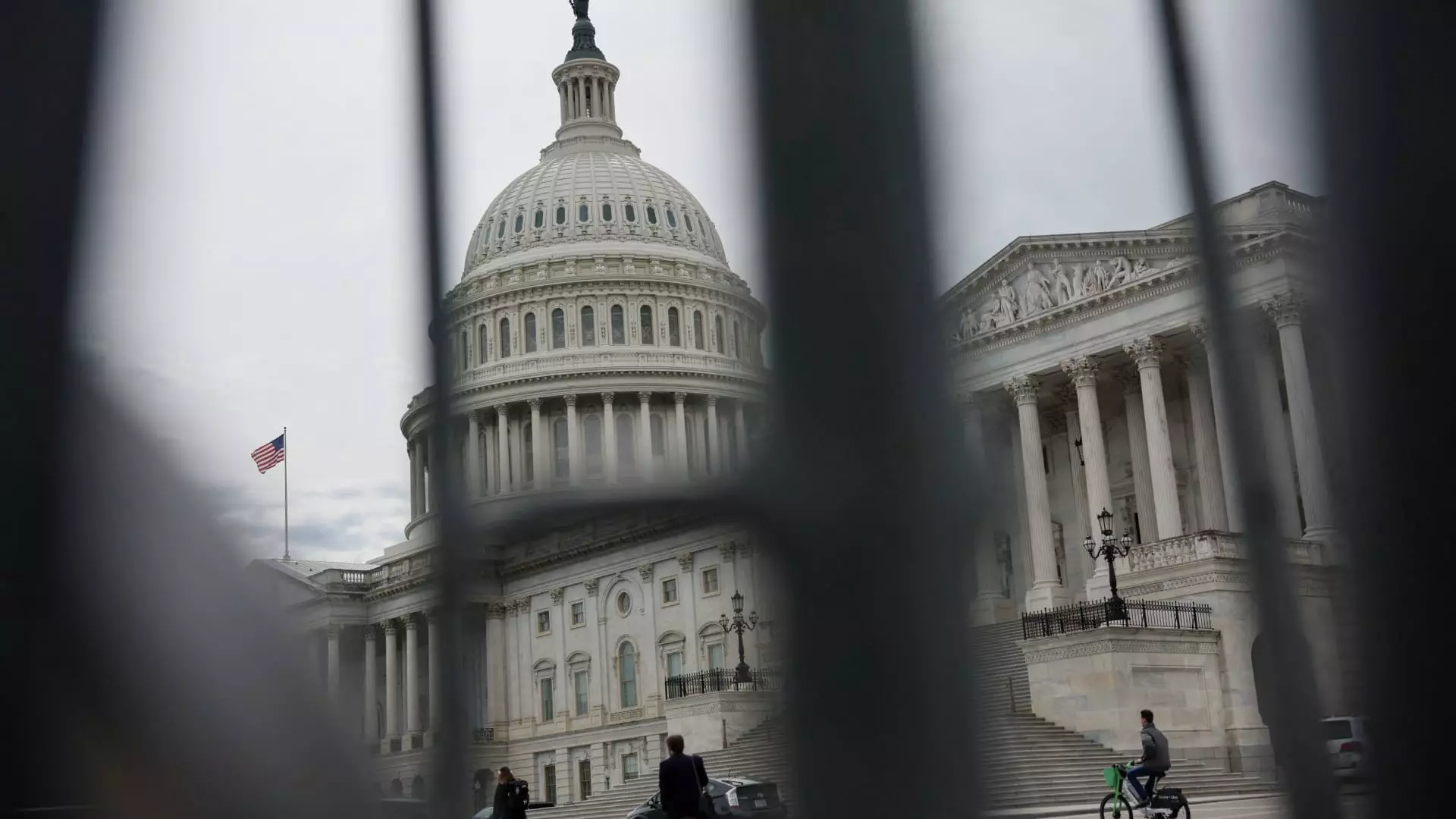At the epicenter of America’s current political climate is the contentious debate surrounding tax cuts and fiscal responsibility. The recent passage of a Republican budget blueprint marks a troubling step toward not only extending President Donald Trump’s 2017 tax cuts but also substantially increasing the national debt. As legislators huddle in the early hours of the morning to push such measures through, one cannot help but wonder: are we genuinely securing the financial future for average Americans, or are we paving a path towards economic catastrophe?
The Republican promise is enticing — a simplified tax structure benefiting the working family, as exemplified by claims made by Senate Republicans, who argue that the average household would only see minor tax implications if cuts were continued. However, at what cost do these policies come? By prioritizing tax relief for the upper echelons of society, there’s an unsettling risk of exacerbating already prevalent socio-economic disparities.
The Detrimental Cost of Tax Legislation
Economic analysts grapple with the vastly differing assessments of this legislation’s financial impact. While Republican representatives confidently assert that the fiscal ramifications amount to a manageable $1.5 trillion, opposing evaluators are more alarmed, projecting a staggering rise in federal debts — upwards of $5.7 trillion over the next decade. The inconsistency in these figures highlights a fundamental issue in American governance: fiscal transparency and its perceived disregard within party lines.
Senator Lindsey Graham’s defense of the budget’s continuation of tax cuts painted a rosy picture suggesting that expiring tax cuts would lead to disastrous consequences for the average American. However, the bleak reality is that these tax policies favor the affluent while the prospect of funding critical social programs hangs by a thread. The efficacy of our financial system hinges on the delicate balance of taxation; prioritizing tax cuts for the wealthy during a time of unchecked spending is a precarious gamble that could unravel the very fabric of social welfare.
The Medicaid Conundrum
One of the most pressing issues within this budget proposal is the potential cuts to the Medicaid program, which provides essential health care services to millions of low-income families. The Republicans’ insistence that efficiencies rather than direct cuts will save costs does little to assuage fears among those who rely on this safety net. Cuts to Medicaid would not simply reallocate funds; they would drastically alter lives, leaving many without access to even basic healthcare.
As Senator Bernie Sanders has rightfully pointed out, effective governance requires a commitment to protecting vulnerable populations, not sacrificing their welfare for partisan gains. The notion that efficiency can replace needed funding demonstrates a startling disconnect from the realities faced by many American families. Amid rising prescription costs and an ongoing push for universal healthcare, slashing Medicaid hardly constitutes responsible governance.
Market Reaction and Economic Ramifications
The swift reaction from the stock market in the wake of these budget proposals speaks volumes. Investors are acutely aware that such tax legislation and proposed spending cuts can spark broader economic consequences, including potential stagnation and recession. The markets’ volatility is indicative of a larger apprehension regarding unregulated economic practices, particularly in light of Trump’s trade tariffs, which could potentially alienate vital trading partners and subsequently inflate consumer prices.
This synergy of a burgeoning national debt and haphazard fiscal policy raises an alarm for all. Are we prepared to shoulder not only the financial burden brought by our representatives’ decisions but also the weight of a constrained social safety net and deteriorating public services?
The Uncertain Path Forward
The legislative battle is far from over, as this budget blueprint heads to the House for further examination. The possibilities for amendments and the influence of concerned lawmakers provide a flicker of hope for enhancing the bill’s focus on protecting essential programs. However, there remains a profound skepticism towards whether genuine reform will emerge, given the overarching ideological divide.
While Democrats struggle to inject vital amendments aimed at safeguarding social services and maintaining support for vulnerable populations, Republicans appear steadfast in their commitment to tax cuts viewed as essential to economic growth. However, we must question the foundation of this growth — if it comes at the cost of basic human necessities, can it genuinely be deemed progress?
In the coming months, as the public observes the implications of these fiscal policies and their effects on personal livelihoods, the accountability of our lawmakers will be scrutinized. As citizens, it’s our responsibility to engage in these debates, advocating for budgetary practices that favor equity and sustainability. The time for passive observation has passed; we must demand a redefining approach to governance that emphasizes both fiscal responsibility and social justice.



Leave a Reply